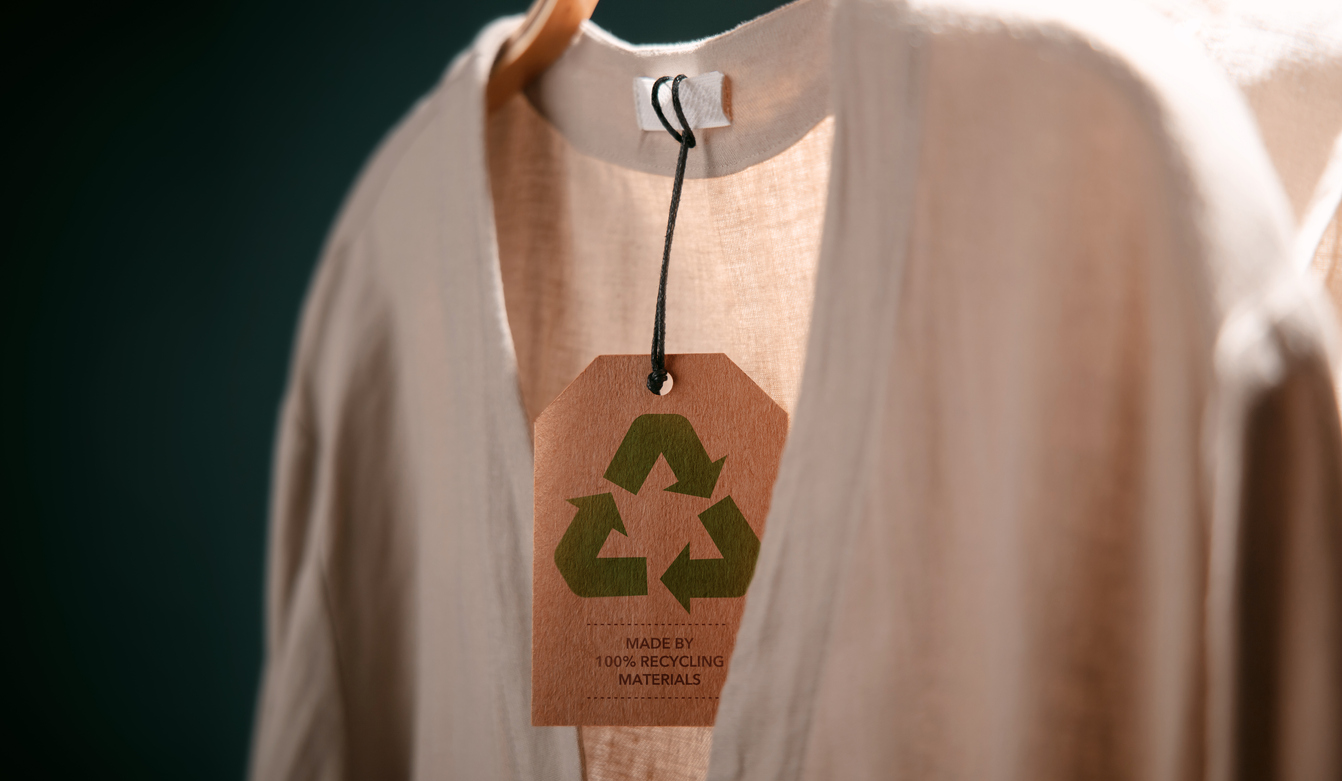Just How Cape Town Sustainable Fashion is Shaping Eco-Conscious Shopping
Just How Cape Town Sustainable Fashion is Shaping Eco-Conscious Shopping
Blog Article
Stay Ahead of the Contour by Exploring Innovative Fashion Fads
In a sector as vibrant as fashion, staying ahead entails even more than just complying with current trends-- it requires an expedition of advancement. Smart textiles, as an example, are changing garments into useful work of arts, while 3D printing is reinventing style processes with its personalized, waste-reducing capacities. As sustainability ends up being a cornerstone, innovations like eco-friendly products and circular fashion techniques are reshaping ecological obligation - Cape Town Sustainable Fashion. Additionally, the merging of modern technology and fashion heralds a brand-new era of customer interaction. How, after that, can these emerging fads redefine the future of fashion, and what effects do they hold for brands looking for to prosper in this evolving landscape?

Embracing Smart Textiles
In recent years, the fashion business has actually observed a transformative change with the assimilation of smart fabrics, an advanced advancement that mixes modern technology with textile. This advancement stands for not just a blend of visual appeals and capability but also a significant leap towards sustainability and personalization in fashion. Smart textiles, also called e-textiles, installed innovative electronic devices such as sensing units and conductive strings within the material, allowing garments to engage with the wearer or the atmosphere.
These fabrics are made to check physical specifications, such as heart rate or body temperature, providing real-time wellness analytics. Past health and wellness applications, smart fabrics are additionally being used for adaptive clothing, which can transform shade or pattern in reaction to environmental stimulations, therefore providing a dynamic style experience.
Additionally, the advancement of energy-harvesting textiles that create power from motion or sunlight is leading the way for self-sufficient wearable modern technology. This advancement is appealing to eco mindful consumers and developers aiming to reduce the eco-friendly footprint of style. As research study and development in this area advancement, clever textiles are anticipated to end up being increasingly common, reshaping the landscape of modern style with their multifunctional capabilities.
The Surge of 3D Printing
Reinventing the manufacturing landscape, 3D printing has actually emerged as a game-changer in the fashion business. This innovative technology has made it possible for designers to press the boundaries of creative thinking, producing complex and customized garments that were previously unbelievable. By leveraging digital layout and additive manufacturing, 3D printing assists in the production of complex geometries and patterns, enabling developers to try out brand-new textures and structures.
A significant benefit of 3D printing in fashion is its capability to generate on-demand, minimizing waste and minimizing supply needs. This effectiveness not just maximizes production processes however additionally enables rapid prototyping, allowing developers to bring their visions to life in a much shorter timeframe. Additionally, 3D printing supports personalization somewhat unmatched by conventional techniques, supplying special layouts and tailored fits tailored to private customer choices.
The surge of 3D printing has actually likewise democratized style, making it easily accessible to emerging developers that can currently fabricate premium pieces without substantial monetary investment in typical production facilities. As innovation remains to development, the garment industry is positioned to harness the complete possibility of 3D printing, discovering brand-new materials and techniques that will definitely redefine exactly how fashion is conceived and generated.
Lasting Style Advancements
As the apparel industry grapples with the pushing demand for environmental responsibility, sustainable style advancements have emerged at the center of transformative modification. The growing awareness of eco-friendly effect has sustained a change towards even more eco-conscious methods and materials. Developers and brand names are now focusing on sustainability, integrating approaches that minimize waste and lower carbon impacts.
One significant growth is the increase of round fashion, which emphasizes recycling and upcycling to expand the lifecycle of garments. This method not only minimizes waste but additionally motivates consumers to take on a more conscious method to clothing usage. Additionally, making use of sustainable products, such as organic cotton, hemp, and recycled polyester, has actually gained grip. These materials need much less water and energy throughout production, dramatically minimizing ecological effect.
An additional development depends on the fostering of ingenious dyeing techniques that make use of waterless procedures or natural dyes, consequently reducing the large quantities of water and chemicals traditionally utilized in fabric dyeing. In addition, developments in biotechnology have caused the production of lab-grown leather and fabrics, using cruelty-free and eco-friendly options to traditional products. Via these introducing initiatives, the apparel industry is making meaningful strides towards a more sustainable future.

Tech-Integrated Garments
Tech-integrated clothing represents an innovative fusion of style and innovation, Website reshaping just how people communicate with their clothes. This innovative domain name is marked by the inclusion of clever textiles and ingrained electronic components, enhancing both capability and visual appeal. From health see post and fitness trackers embedded in sports apparel to warmed jackets regulated through smart device applications, tech-integrated apparel supplies consumers extraordinary comfort and versatility.
Pioneering brands are driving this trend, focusing on developing garments that react to ecological stimulations or customer commands. As an example, some garments can alter color or pattern in reaction to temperature shifts, while others incorporate biometric sensing units to check wellness metrics like heart price or tension levels. The seamless combination of technology right into fabrics likewise includes environmental sustainability, with initiatives to establish self-cleaning materials or garments that adjust to weather conditions, hence lessening the requirement for multiple layers.
Furthermore, the arrival of wearable modern technology is not just limited to apparel however encompasses accessories like watches and glasses, more widening the scope of tech-integrated style. As the industry remains to innovate, the potential for personalization and customization in apparel expands, using consumers one-of-a-kind, tech-enhanced fashion experiences that deal with their private needs and choices.
Future of Virtual Fashion
In the last few years, the future of online style has become a transformative force within the sector, leveraging developments in electronic innovation to redefine how style is created, experienced, and taken in. By incorporating enhanced fact (AR), online fact (VR), and 3D style devices, designers can currently craft immersive and interactive experiences that go beyond traditional fashion borders. Virtual style permits the production of garments that exist solely in electronic settings, providing countless possibilities for advancement without the constraints of physical production.
This digital change not published here just presents chances for imaginative expression but likewise addresses sustainability worries inherent in conventional style techniques. Cape Town Sustainable Fashion. By eliminating the requirement for physical sources, digital style reduces waste and reduces carbon impacts. In addition, the surge of virtual fashion lines up with the boosting customer need for unique and customized experiences, as digital garments can be tailored and customized to individual preferences easily

Verdict
The garment industry's future hinge on the combination of sustainable techniques and ingenious technologies - Cape Town Sustainable Fashion. Smart fabrics and tech-integrated clothing are boosting performance, while 3D printing offers chances for customization and waste decrease. Sustainable style, through green materials and round techniques, demonstrates a commitment to ecological stewardship. Furthermore, online fashion is positioned to redefine consumer interactions. Adjusting to these fads is crucial for brand names seeking to continue to be competitive and relevant in this swiftly advancing landscape.
In current years, the style market has actually observed a transformative change with the integration of smart textiles, an innovative technology that blends technology with fabric.As the fashion industry grapples with the pressing requirement for environmental obligation, sustainable fashion advancements have actually arised at the leading edge of transformative modification.In current years, the future of online fashion has emerged as a transformative force within the industry, leveraging advancements in digital technology to redefine how fashion is created, experienced, and consumed. The surge of digital style straightens with the boosting customer demand for customized and distinct experiences, as virtual garments can be customized and customized to private preferences with simplicity.
The fashion sector's future lies in the assimilation of ingenious innovations and sustainable practices.
Report this page